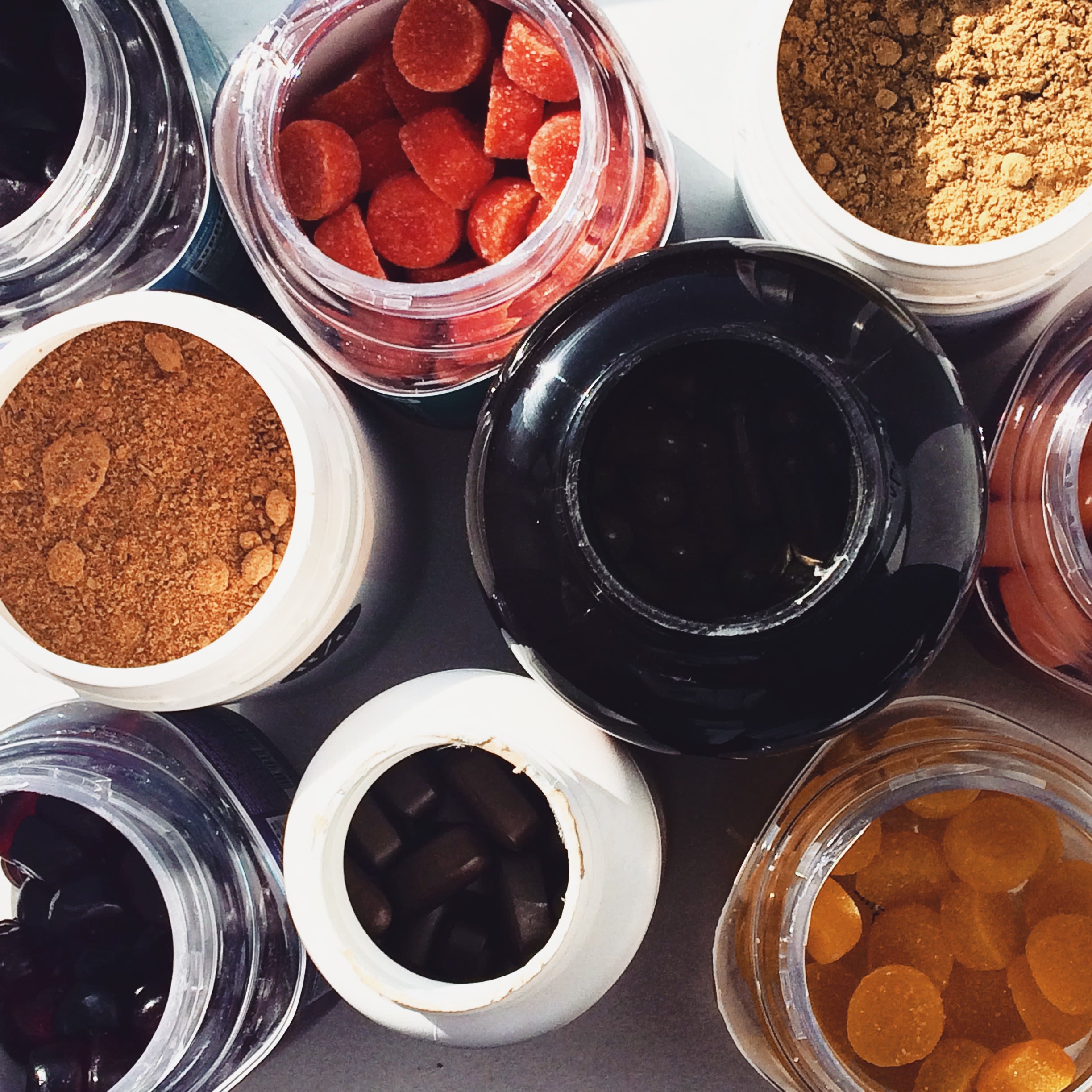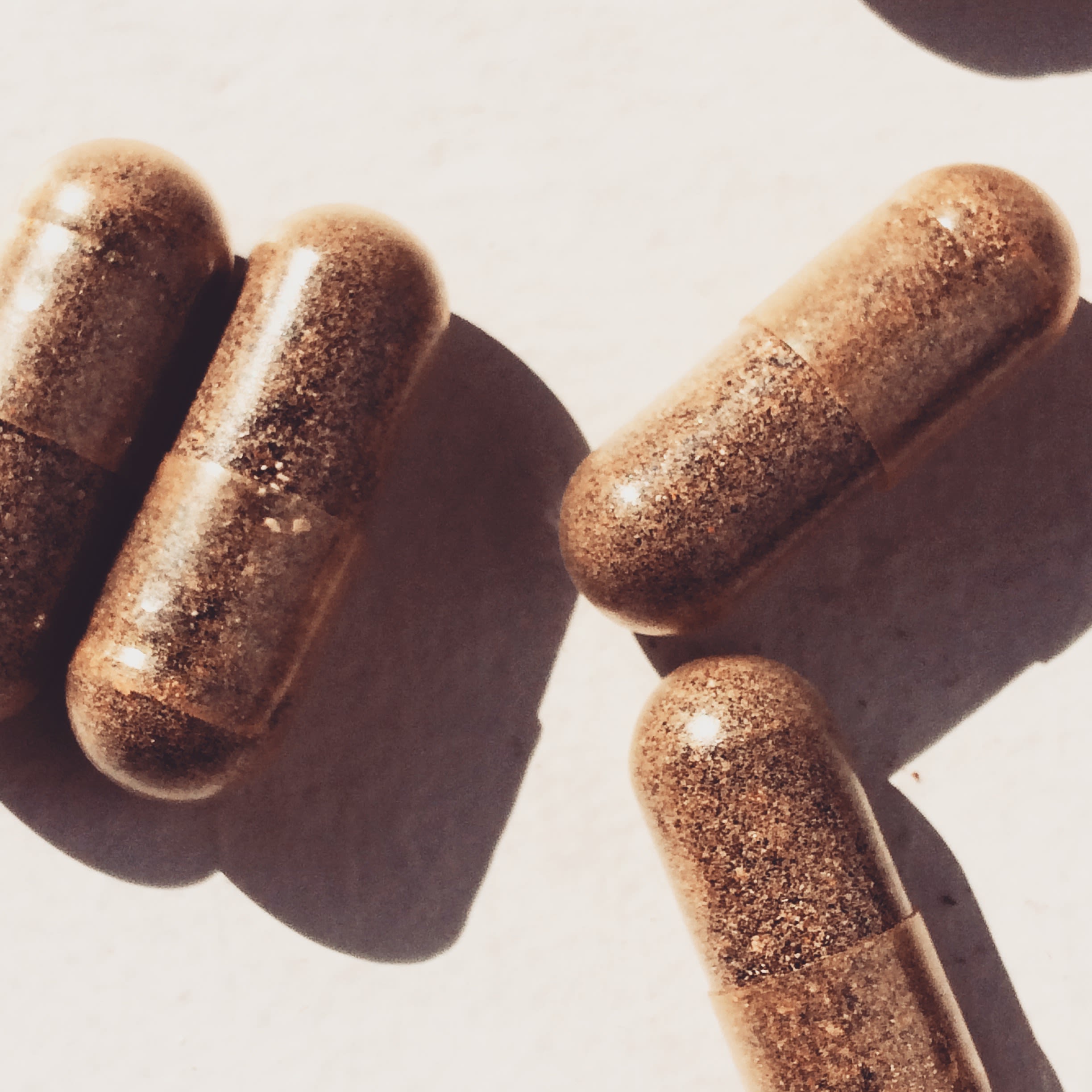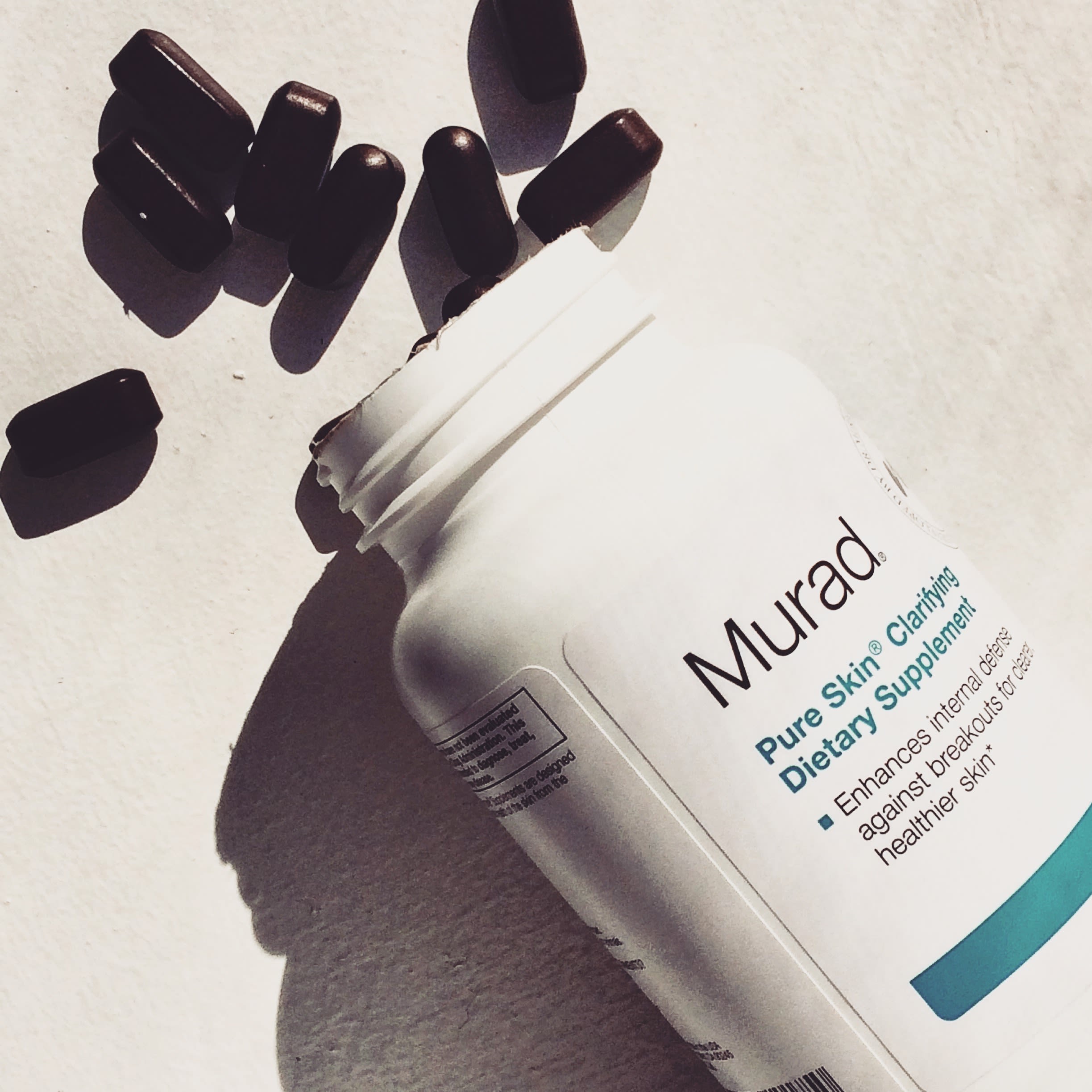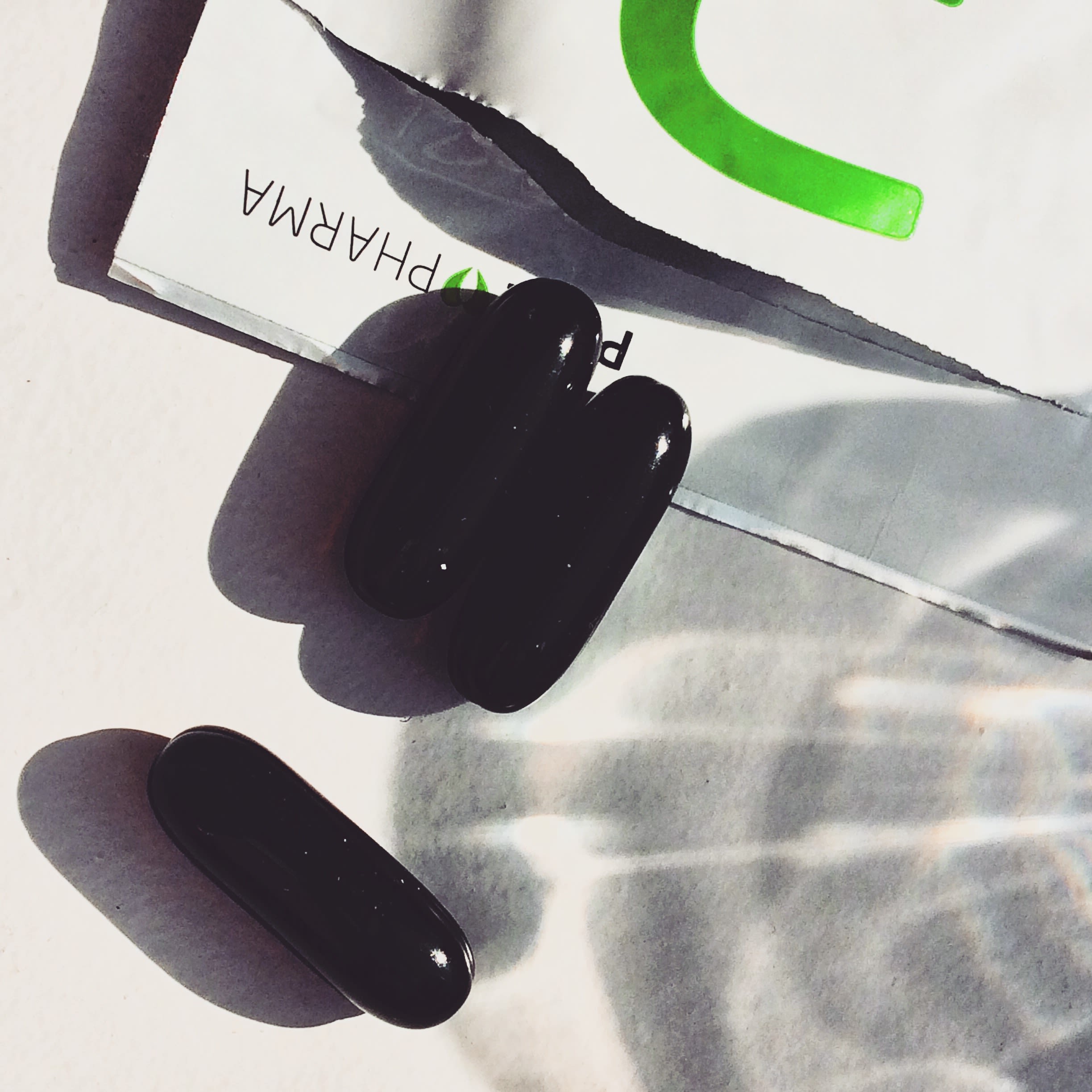The act of taking vitamins is a bit like remembering to floss: Often recommended by trusted medical professionals, but questioned by ordinary, everyday people just as frequently. Maybe it’s because there’s very little instant gratification from both (the main thing driving beauty marketing these days, or so says Womens Wear Daily). But the ADA’s current PR nightmare aside, taking nutrient-dense pills seems like a generally good thing, instant results or no, right? Most of us could probably do some good with a few extra vitamin and minerals—beauty benefits, of course, are an added perk.
Conveniently, beauty supplements are having a moment right now. Currently, the ITG Beauty Closet is stocked with offerings from Murad, Ritual, Olly, Raw Complexions, Catalyst Gold, Dr. Perricone...chic lines of vitamins, oil gelcaps, and other assorted ingestibles aimed at making your body even better than it is already from the inside out, and with pretty packaging, too. Juice cleansing is out, beauty nutrition is in, it seems.
Yes, chic supplements are tempting! They certainly look a lot nicer on your shelf than a bottle of dinosaur-shaped chewables. But, like your mother always said: Don’t swallow anything you haven’t read about extensively, talked to your doctor about, and crowdsourced on Instagram. ITG took the time to do all three of those things for you, so take a chill pill (also a supplement?) and read on.
First, let’s all get on the same page: What exactly is a supplement?
To get some clarity, we spoke with Dr. Luke Bucci, VP of Research and Development at Ritual, a nutrition company that recently made headlines for their modern, clean-label approach to vitamins. Dr. Bucci says that the word “supplement” is a really broad term that covers vitamins and minerals, amino acids, extracts, and other food derivatives meant to supply your diet with whatever might be missing. To be a fully functional human, you need a lot of nutrients—ones you’d ideally get from the food you eat at breakfast, lunch, and dinner. But, he says, actually successfully doing that is tricky. Taking vitamins is meant to help fill in the gaps.
How are beauty supplements different from other “vitamins” I might add to my diet?
Dr. Sonia Patel, the chief pharmacist at Capsule–a pharmacy app based in NYC–says if you’re lacking in nutrients, it can show up in your hair, skin and nails. So overall, not that different. Almost all deficiencies are connected to beauty somehow, so the first step ought to be to fix what’s inside. Even those vitamins that seem further off—say, ones that promote digestion—can have a natural effect on your outside appearance.
Can any of this actually hurt me or is it all net-positive?
A couple of things: 1) There is a such thing as too much, and 2) product purity is important. The negative effects of excess can be worse than taking nothing at all. And because the market isn’t FDA-regulated, you want to be careful about what you put in your body. Use brands you trust and products with ingredients you know a thing or two about. Talk to your doctor or your pharmacist. Medea Juhasz, creator and founder of Herbalore, says it’s a good idea to learn how to read the labels so you know what you’re looking at. And in addition: Dr. Bucci argues that while frequently-recommended ingredients may not be harmful, they also probably won’t do much for you unless you have a deficiency. He also mentioned it's a good idea to take your vitamins with meals—the body will use them more efficiently that way.
Why is the market so confusing and complicated?
Well, in a word: money. Without FDA regulation, brands can easily make claims that go unchecked. They can also leave out important information and mark up the prices. This isn’t necessarily the case across the board, but it’s something to be aware of, especially in generic supplements–one example.
For some level ground, look out for USP, NSF, or ConsumerLab certifications. These independent organizations exist to check the purity of supplement products. Submissions by brands are voluntary, and the processes are rigorous, so if you’re worried about a product, check for one of those seals on the label. You can also search for a product or brand on any of those websites.
Any specific ingredients I should watch out for?
Dr. Patel recommends staying away from anything that contains hydrogenated oils, artificial colors, magnesium stearate, and titanium dioxide. She says they’re often used as “fillers” to make the product easier to swallow, taste better, or look better, but can get in the way of your body’s ability to absorb the vitamins. Medea also suggests avoiding anything that contains maltodextrin or ascorbic acid for the same reasons.
OK, but what about all the actual “vitamins” you keep mentioning?
Getting there! All three experts plus a lot of ITG readers pitched us their top recommendations for beauty supplements. See below for the best of the best.
The Vitamin Glossary
Vitamin A: Vitamin A is used to treat several different skin conditions, including acne, eczema, psoriasis, cold sores, sunburn. While it has been shown to be effective in high doses, the side effects can be dangerous, so consult your doctor about this one.
Astaxanthin: This is a powerful antioxidant that can be used topically and orally for sun protection, and due to its anti-inflammatory properties it’s great for skin conditions. It’s also good for elasticity and to help reduce signs of aging. Dr. Bucci recommends about 2-8 mg of astaxanthin a day.
Biotin: Also known as vitamin H, biotin became super popular in the beauty supplement world thanks to the fact that biotin deficiencies can sometimes result in hair loss and brittle nails. But those deficiencies are rare, says Dr. Bucci, and there is almost no evidence to show that biotin creates those results. It isn't known to be harmful to take in prescribed doses, but it probably isn't the miracle ingredient it's made out to be, either. You can read more about it here.
Vitamin C: “The body requires vitamin C to make collagen, which aids skin when it needs to heal. In some cases, it may also reduce the appearance of wrinkles,” says Dr. Patel. It’s also been used to enhance your topical sunscreen’s effectiveness by decreasing cell damage, and acts as an antioxidant against free radicals. Dr. Bucci does argue that for desired anti-aging results in most people, it’s required in doses that are higher than he’d recommend taking.
Ceramides: These are natural lipids found in the skin, and while you’re probably familiar with seeing them in topical products, they’re more rarely found in oral forms. According to Dr. Bucci, though, if ingested, the same results can occur within just a few short weeks. It’s effective in treating conditions like eczema and dry skin.
Chlorella: This is a form of algae, similar to spirulina. It’s regarded as a “superfood” by many nutritionists and contains significant amounts of protein, lipid, carbs, fiber, nucleic acids, vitamins and minerals. It’s often used to slow aging, protect from toxins, and promote mental health. Not a ton of evidence to back up its effectiveness–yet, at least.
Vitamin D: “Our bodies produce vitamin D3, which comes in a synthetic form called Calcitriol. In a study, applying calcitriol reduced the skin inflammation and irritation in patients with psoriasis with few adverse side effects," says Dr. Patel.
Vitamin E: This vitamin is recommended for inflammatory skin disorders like psoriasis and contact dermatitis, anti-aging and sunburns. On top of that, according to the Natural Medicines Comprehensive Database, there is adequate evidence to suggest it can help to treat PMS symptoms, anemia, and sunburn.
Phyto Resveratrol: Resveratrol is found in grape skins, juice, and wine. It’s used to help lower cholesterol levels and fix aging skin. Read more about it here.
Evening Primrose Oil: This oil derived from the primrose plant can be used to treat acne, but there haven’t yet been many studies to show how effective it is. There is a chance (see the NMCD) it might be unsafe to take orally by pregnant women.
Fish Oil: Doctors might recommend fish oil for weight loss, hair growth, skin regeneration, and even to treat some psychological disorders. It has been scientifically proven–again, see the NMCD–to reduce triglyceride levels by 20 to 50 percent. And, some studies have shown it can be effective in treating psoriasis. That said, high, frequent doses can be dangerous due to the levels of toxins (such as mercury) contained in some fish, so quality is especially important here.
Hyaluronic Acid: See also hyaluronate, sodium hyaluronate, or glycoaminoglycan. Dr. Bucci lists this as his number one ingredient for beauty supplements, and while we’ve talked about hyaluronic acid in topical products before, it can be taken orally for the same deeply hydrating effects. Side note: At this point, there isn’t enough evidence yet regarding its safety if used orally during pregnancy, and the NMCD says pregnant or nursing women should avoid it until there is more information.
Iron: Dr. Patel says, “We still haven’t been able to identify what causes hair loss, but some studies show that having low levels of iron in your blood can make hair loss worse. Preventing iron deficiency may help give your hair the best chances of regrowth or slowing shedding. Vitamin C increases iron absorption when the two are paired together.”
Vitamin K: “Vitamin K is essential for blood clotting and bone health," Dr. Patel states. "Due to its role in blood clotting, vitamin K is found in topical creams to treat a variety of skin conditions. It is often prescribed to people who have just had surgery and can be used to treat unsightly skin irritations like spider veins, stretch marks, scars, and undereye circles."
Manuka Honey: Manuka honey differs from your typical flower honey in that it contains higher levels of enzymes. Because it’s a natural antibiotic, it’s great for a number of things involving the stomach and the gut, and treating acne. You can eat it straight or put it in tea, and Medea recommends it as a mask once a week.
Spearmint: Due to its anti-inflammatory properties, taking spearmint capsules or drinking spearmint tea can help the prevention and cure of acne. It’s been shown that spearmint tea can affect the liver negatively if used in excess, though.
Edited to add: Spearmint can increase liver damage when it's used in combination with drugs that are known to damage the liver.
Water: Technically not a "supplement" since it's simply necessary to survive, but it's also pretty underrated in its skin-enhancing, energizing, digestion-boosting abilities. It can also help your body absorb whatever other vitamins you might be taking.
Zinc: Zinc can be used to treat acne and some mental disorders, but the NMCD recommends against “routine” zinc supplementation, and should be used only if zinc deficient enough to have symptoms like severe diarrhea. What a great place to end!
Photos via ITG. Research and reporting by Anna Jube.
Brush up on your nutrition facts with ITG's Ingredients to Know.








